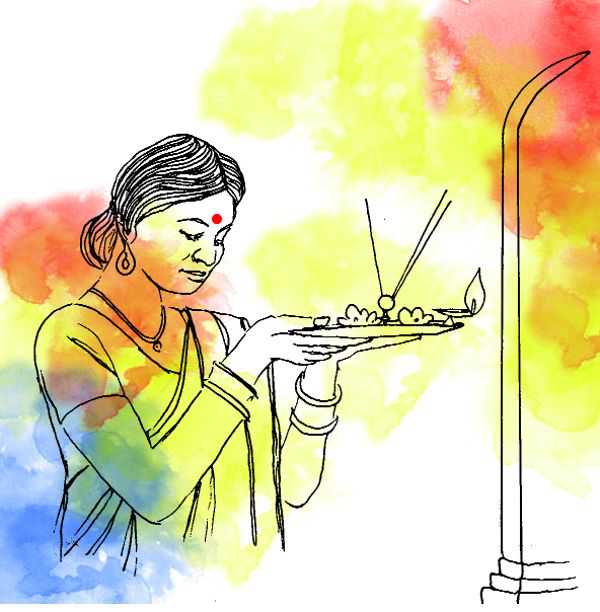By Sai R Vaidyanathan
The debate in the media over the recent ruling by the Supreme Court in the Sabarimala case has made Lord Ayyappa appear anti-women. This portrayal of the deity at the hill shrine in Kerala is not correct.
Sanatan Dharma is unique as far as the concept of personal God is concerned. And just like every human undergoes various stages of evolution — student, householder, retired — one’s favourite deity is imagined and worshipped in different forms.
The form of Lord Ayyappa that is consecrated at Sabarimala is that of a ‘naishtika brahmchari’ (eternal celibate). But there too, little girls and elderly women are allowed to have his ‘darshan’.
In other shrines dedicated to the same Lord in Kerala, across India and the world, there are no restrictions on women devotees. Lord Dharmasastha, of whom Ayyappa is considered an incarnation, has two wives Poorna and Pushkala and a son, Satyaka.
Not limited to Ayyappa
These multiple forms are not limited to Ayyappa. In the Kartikeya Temple in Pehowa, Haryana, Lord Kartikeya is worshipped as a celibate. Legend has it that the Lord — as a bachelor at that time — stayed with his parents in North India. Due to a fight over a fruit, he left his family and went south to Palani. There, in time, he got married.
So in South India, Lord Kartikeya is worshipped as a householder having two wives Valli and Devasena.
Similarly, Lord Ganesh is regarded as celibate in some areas of India and as wedded to Siddhi and Buddhi in other areas. From Ganesh, Siddhi had a son Kshema and Buddhi had a son Labh.
Lord Hanuman too is regarded as a Brahmchari in most parts of India, but in Khammam in Telangana, he answers devotees’ wants as a householder. There, he is married to Surya’s daughter Suvarchala. Hanuman also had a son called Makardhwaj.
Tailor-made for devotees
The different forms of the Lord are due to varied needs of the devotees. While Lord Hanuman is invoked to bestow strength, Lord Balaji at Tirupati is worshipped for wealth. If unmarried girls pray to Lord Shiva on Mondays to get a good husband, Lord Jagannath — with his siblings Balaram and Subhadra — is symbolic of fraternal love.
Lord Rama is imagined as a little boy (Rama Lalla) at the disputed site in Ayodhya for the devotees to pour out their parental love.
Similarly, Lord Ayyappa at Sabarimala lends strength to the devotees’ sexual self-control.
The Lord has taken a vow of eternal celibacy while his eternal consort-in-waiting Mallikapurathamma waits at a nearby shrine to wed him. Ayyappa has promised to unite with Mallikapurathamma if in a year, no new devotees visit him.
The male devotees who visit him also undergo 41-day sexual abstinence before embarking on the pilgrimage. Needless to say, their wives — at home — also observe the vow of celibacy.
At a time when newspapers are full of incidents of rape, at least there is Lord Ayyappa who is sticking to his vow of celibacy.
Unlock Exclusive Insights with The Tribune Premium
Take your experience further with Premium access.
Thought-provoking Opinions, Expert Analysis, In-depth Insights and other Member Only Benefits
Already a Member? Sign In Now











